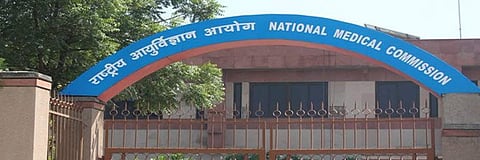
- News
- Campus
- Exam
- Podcast
- Web Stories
- Do You Know
- Path Finders - UG Programs
- Videos
- Book Review

In an endeavour to curb the persistent issue of ragging within the higher education landscape, the National Medical Commission (NMC) has taken a resolute stance by introducing a comprehensive campaign against ragging. This campaign is spearheaded by the University Grants Commission (UGC). The commission recently wrote a letter to all the vice-chancellors of all the universities regarding its anti-ragging regulations.
This move comes as a calling for the observance of Anti-Ragging Day on August 12, followed by an Anti-Ragging Week extending from August 12 to August 18, 2023. The aim is to create awareness and ensure the safety and well-being of students within educational institutions.
In the letter dated August 5, 2023, the UGC emphasised the importance of these anti-ragging regulations, outlining mandatory measures to ensure strict compliance. “These regulations are mandatory and all institutions are required to take necessary steps for its implementation in toto including the monitoring mechanism as per provisions in the above regulations and ensure its strict compliance,” states the letter.
The initiative takes a multifaceted approach to combating ragging. It involves introducing orientation programmes focused on anti-ragging measures, conducting various competitions such as slogan and essay-writing, poster-making and logo designing to promote awareness among students, faculty and non-teaching staff. Furthermore, the initiative encourages engaging events such as workshops, seminars and creative platforms that promote the idea of an environment free from ragging.
To amplify the message against ragging, the UGC has also integrated media campaigns into its strategy. Short films, documentaries and TVCs addressing the issue have been made available on the UGC's website for institutions to utilise in spreading awareness among their communities.
“The Universities and Colleges are requested to share the details of the weeklong activities amongst students, faculty and other stakeholders with a request for their active participation,” concludes the letter.
